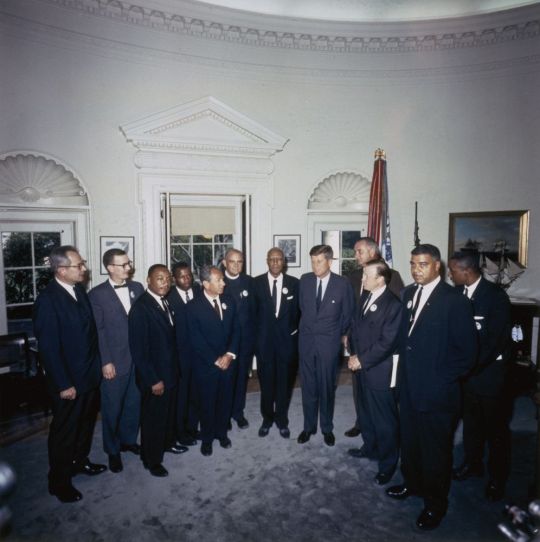#stand against racism
Starting this month, in conjunction with the YWCA’s national program, Stand Against Racism, the JFK Library will share stories of people who took a stand against racism during the Kennedy administration.

In August 1963, more than 200,000 Americans of all races celebrated the centennial of the Emancipation Proclamation by joining the March on Washington for Jobs and Freedom. Key civil rights figures led the march, including A. Philip Randolph, Roy Wilkins, Bayard Rustin, and Whitney Young.
When civil rights leaders announced plans for a march on Washington that summer, Kennedy initially opposed the idea, fearing a large demonstration in the capital could turn violent and jeopardize his proposed civil rights bill. After a meeting with the leaders, he was persuaded that the March was “in the great tradition” of American protest.
Starting this month, in conjunction with the YWCA’s national program, Stand Against Racism, the JFK Library will share stories of people who took a stand against racism during the Kennedy administration.

Martin Luther King Jr., head of the Southern Christian Leadership Conference, calls Birmingham, Alabama “the worst big city in race relations in the United States.” He writes this on December 17, 1962 in a telegram to President Kennedy after the bombing of Birmingham’s Bethel Church. This is just one in over fifty bombings in fifteen years, in a city that has segregation written in its laws and a police department.
A major demonstration in Birmingham could bring a much-needed victory for the civil rights movement. King works with Wyatt Tee Walker, Ralph Abernathy, Fred Shuttlesworth and other SCLC leaders to devise a plan. They call it Project C - ‘c’ for confrontation.
Starting on April 3, 1963, it will build in waves, first with sit-ins, then a boycott, and finally, non-violent protest marches on a daily basis, which are likely to provoke heavy-handed reactions from police, with mass arrests. The media will cover it, and everyone will see why black people are asking for justice in the South.
